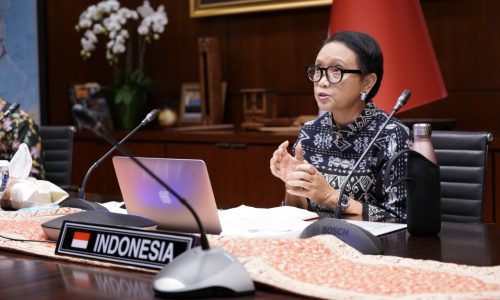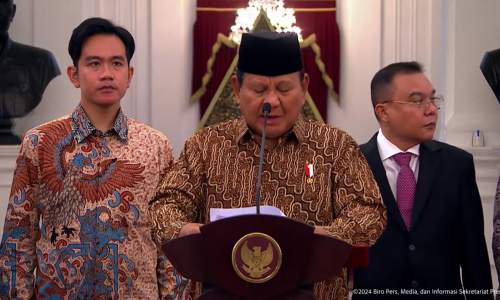The Indonesian Employers Association (Apindo) calls on the government to safeguard the domestic market through the implementation of additional import duties as it will help maintain the performance of the national manufacturing sector amid the decline in Indonesia’s Purchasing Manager’s Index (PMI).
S&P Global recently reported Indonesia’s manufacturing PMI at 49.3, indicating a contraction phase for the first time since August 2021.
Bobby Gafur Umar, Vice Chairman of Apindo’s Manufacturing Industry Sector, emphasized the need to protect the domestic market from the influx of imported products, which threaten local production levels.
He attributed the drop in the July 2024 PMI to the weakened export markets caused by the pandemic, geopolitical conflicts, and trade wars.
“We must protect the domestic market demand from cheap imported products, likely resulting from dumping policies,” Bobby said as quoted by Katadata.co.id on Thursday, August 1, 2024.
Dumping is a strategy where a product is sold at a lower price in a foreign market than in its domestic market.
Bobby argued that safeguarding the domestic market is a feasible short-term policy, as dumping practices have already caused many local garment manufacturers to shut down.
Therefore, he urged the government to expedite the issuance of Anti-Dumping Duties (BMAD) on imported ceramics.
The Indonesian Anti-Dumping Committee found that Chinese ceramic products are dumped at rates between 100.12 percent and 199.88 percent below normal prices.
This unfair practice has severely impacted the national ceramics industry, leading to decreased production capacity and profits. Similar dumping practices have been observed in the United States, Mexico, and India, where anti-dumping duties ranging from 74.5 percent to 451.6 percent have been implemented.
Bobby noted that the downward trend in Indonesia’s manufacturing PMI has been evident since April 2024, continuing through June 2024 at 50.7 points and dropping to 49.3 points in July.
He warned that this trend will persist without effective short-term policies and inter-agency cooperation.
He cited the decline in domestic car sales during the first half of the year, as reported by the Association of Indonesian Automotive Industries (Gaikindo).
Domestic car sales fell 19.43 percent year-on-year to 408,012 units from January to June 2024, while car exports dropped 23.12 percent to 218,333 units.
The resulting stockpile of unsold cars has led to a 19.99 percent reduction in production volume compared to the same period in 2023, increasing production costs due to higher inventory volumes.
Similar conditions are affecting other manufacturing sectors, prompting Bobby to call for comprehensive policies to reduce production costs, such as expanding and continuing the Specific Natural Gas Price policy.
“The combination of an influx of imported products and high production costs will directly impact the manufacturing industry,” he said.
Given that the manufacturing sector contributes more than 16 percent to the national economy, Bobby stressed the urgency for the government to implement rescue measures within the next three months to prevent systemic effects, such as mass layoffs.
“Immediate action is needed to ensure the survival of domestic industries and prevent a systemic crisis,” he concluded.









